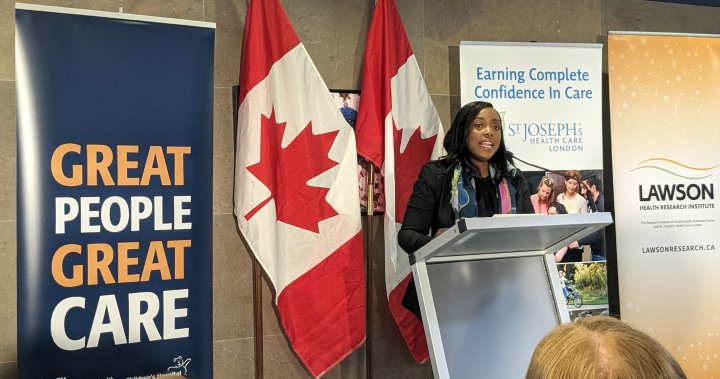St. Joseph’s Health Care London and London Health Sciences Centre are using federal funding to train hospital staff in harm reduction strategies to better understand the lived experience of people facing addiction. The Lawson Health Research Institute received $72,768 in funding from Health Canada’s Substance Use and Addictions Program (SUAP) for the development of training based on the experiences of individuals accessing addiction care. This latest round of funding, along with previous investments, brings the total research project budget to over $1 million. Liberal MP for London West, Arielle Kayabaga, emphasized the need for a compassionate, comprehensive, and evidence-based approach to address the ongoing overdose crisis.
Research conducted by Lawson found that patients using drugs such as methamphetamine often faced a lack of understanding about addiction from healthcare workers and hospital staff. This lack of awareness led to patients experiencing withdrawal symptoms while in hospital care, leaving against medical advice, or avoiding seeking care altogether. Lead researcher Dr. Cheryl Forchuk highlighted the issue of withdrawal symptoms not being properly recognized or addressed, leading to patients feeling trapped in a no-win situation. One specific area of focus from the study was the removal of sharps boxes from certain inpatient hospital rooms, which ultimately had negative consequences.
In response to the research findings, staff education has been improved to enable better identification and management of withdrawal symptoms. 400 staff members have already been trained in one-on-one sessions with individuals with lived experience, and an online learning tool is currently being developed to provide training for over 1,700 nurses at LHSC and St. Joseph’s. This enhanced training has resulted in staff feeling less intimidated and more capable of engaging in conversations with patients, ultimately creating a safer and more open environment for individuals to disclose their drug use without fear of judgment.
The removal of sharps boxes from hospital rooms had the unintended consequence of inhibiting open communication with patients suspected of substance use, as the absence of the boxes served as a deterrent for individuals to disclose their drug use. By reinstating the sharps boxes and providing staff with the necessary education and resources to support individuals experiencing withdrawal symptoms, healthcare facilities are working towards creating a more inclusive and understanding environment for patients with addiction. The research project aims to bridge the gap between healthcare providers and individuals struggling with addiction to ensure that individuals receive the necessary support and care to improve their overall well-being.
Overall, the integration of harm reduction strategies and the enhancement of staff education in recognizing and addressing withdrawal symptoms have been instrumental in creating a more supportive and understanding environment for individuals facing addiction. By meeting individuals where they are and providing non-judgmental care, healthcare facilities are working towards helping individuals access the support and resources they need to lead healthy and fulfilling lives. Through a collaborative and evidence-based approach, the impact of the ongoing overdose crisis can be mitigated, and individuals facing addiction can receive the appropriate care and support necessary for their recovery and well-being.


